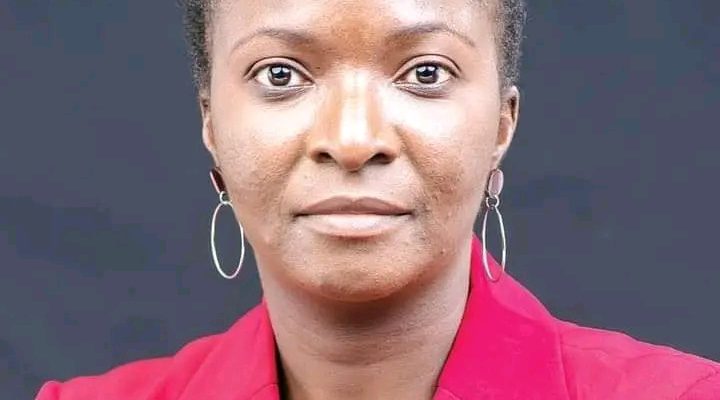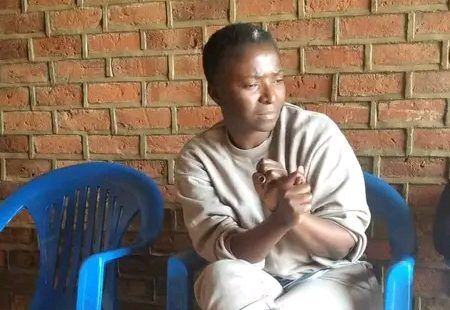
Mixed reactions from many patriotic Malawians have ensued following the announcement by the Director General (DG) of the Anti-Corruption Bureau (ACB), Ms. Martha Chizuma, that she will not renew her contract due to some undisclosed personal and professional reasons.
However, a million-dollar question resurfaces: are there any pertinent lessons we can learn from Martha’s professional undertakings? This episode, therefore, endeavors to outline 10 lessons gleaned from the incumbent DG of ACB, who has lamentingly disappointed many Malawians like a lost beacon of hope in fighting corruption in Malawi.
First, be professional and ethical at all times by separating the exigencies of your job from families and friends.
One of the circumstances that led to the downfall of Martha Chizuma was the leaked audio in which she was heard discussing office issues with purportedly a friend. The contents of the conversation ignited animosity between her office and other key players including President Chakwera, the judiciary, and the former Director of Public Prosecution (DPP), Dr. Steve Kayuni.
Second, fighting corruption is not a one-man show. Thieves loot and plunder government coffers through a well-coordinated network. In fact, corruption has become an organized crime in Malawi.
It is against this background that no one can fight corruption single-handedly. In fact, Martha Chizuma was working in a hostile environment where the former DPP, the judiciary, the State President, and most senior government officials are beneficiaries of this cancerous vice.

While Martha Chizuma was busy arresting corruption suspects, President Chakwera stood his ground to perpetrate corruption by pardoning corruption suspects such as Bakili Muluzi. On the other hand, the judiciary tried its best to derail justice by granting unreasonable court orders to corruption suspects, thereby restraining ACB from further prosecuting them.
As if the aforementioned incidents are not enough, Dr. Steve Kayuni became a celebrity when he masterminded the unceremonious arrest of Martha Chizuma.
Third, one’s adaptability to transfer professional skills appropriately to various jobs is crucial.
A public outcry ensued when Martha Chizuma was initially rejected by the parliamentary public appointment committee. It is an open secret now that the general public harbored high expectations from Martha Chizuma following her impeccable performance as the Ombudsman.
Unfortunately, it seems reasonable to conclude that Martha Chizuma has dismally failed to competently apply her previous professional skills and experience to the directorship of ACB. It does not require a rocket scientist to appreciate that ACB has become toothless as it is perceived to be a government machinery that aims at selectively poaching and arresting corruption suspects from the opposition party while dropping corruption charges for the ruling Malawi Congress Party (MCP) stalwarts.
Fourth, do not trust a politician. Any objective person knows that politicians use every opportunity to stay in power. President Chakwera is not a unique politician.
When President Chakwera promised Malawians that he would not fire Martha Chizuma following the controversial leaked audio, every nana and nene believed him. He eloquently promised that he would support Martha in any way possible.
As you are reading this statement, allegations are ripe that President Chakwera has coerced Martha not to renew her contract in lieu of the lucrative position of a judge in the judiciary.
What is more startling is that President Chakwera awarded Dr. Steve Kayuni the position of Principal Secretary in the government for masterminding the arrest of Martha Chizuma.
Despite President Chakwera’s pledge to support ACB in its fight against corruption, scant evidence on the ground has revealed that the organization is not well-funded. It is believed that some corruption cases are dragging at a snail’s pace due to insufficient funding.
Fifth, aim high. Raised in Nkula Falls but coming from Nkhotakota, matriculated at Zingwangwa Secondary school and graduated with a Bachelor of Laws from Chancellor College, Ms. Martha Chizuma had no iota of any hint that one day she would be the DG of ACB.
It will be another step forward along her career ladder if Martha Chizuma is seconded to be a judge in the Malawi judiciary as it is alleged now.
Sixth, ACB needs a proficient legal team. In her defense to justify the delayed conclusion of corruption cases in our courts, Martha Chizuma conceded that ACB does not have competent lawyers to match with those hired by corruption suspects. Obviously, corruption suspects who have corruptly amassed a lot of wealth can corrupt anyone, including court judges and even hiring well-experienced competent lawyers. It, therefore, becomes imperative that ACB has a strong, dedicated, and patriotic team.
Seventh, ACB must be immune to political interference. Despite Chakwera’s pledge that his regime would hire a foreign corruption expert to head ACB, the President still enjoys the prerogative to hire and fire the DG of ACB as he wishes. This puts the organization at the mercy of the President.
In spite of Chakwera’s campaign promises that his government would ensure that ACB would be fully independent from any political interference, no bill to that effect has been tabled in parliament after four years of being in power.
Eighth, prevention is better than cure. It is high time we started concentrating on ways of preventing incidences of corruption. We need to inculcate values of integrity in our children right away from our families, religious groups, social groups up to our education systems.
Civic education through social media platforms, radios, newspapers, and television shows can become an indispensable tool to prevent corrupt practices.
There is also a need to address the root causes of corruption in Malawi. Frankly speaking, our government systems and regulations are so porous that they have become a catalyst for corruption.
Once a corruption suspect is convicted, heavy punishment must be meted out to deter potential offenders. Custodial sentences must be accompanied by confiscating all properties and money obtained through corruption.
It is important to note that Martha’s legacy was to educate the masses on preventive measures of corruption in addition to prosecuting corruption suspects.
Ninth, fighting corruption in Malawi needs international collaboration and support. With no political will to stamp out corruption by Chakwera’s regime, appreciation is in order to the American and British governments for dealing with some corruption suspects in Malawi.
For instance, the British government through the National Crime Agency (NCA) exposed dubious and corrupt practices by Zunneth Sattar in Malawi. It is unfortunate that Sattar and his accomplices’ cases have gathered dust in our courts. It was learnt that Martha Chizuma collaboratively worked with NCA to bring Sattar to book.
Some weeks ago, the American government announced that it had banned corruption suspects and their families such as George Kainja and Reyneck Matemba from setting their corrupt feet in the United States of America.
Last but not least, know when to quit. Martha Chizuma is teaching all political leaders and managers that if things are not going in the right way, quitting or resigning is the best patriotic option. Out of 20 million Malawians, it is unpatriotic for the country to be held at ransom by a single individual. For sure, there are more competent Malawians out there.
For instance, if President Chakwera had honored his promise of resigning after two years of his dismal performance, do you think our economy would have worsened like this now? Malawians are therefore advised to answer this question on the ballot paper in the 2025 general elections.














